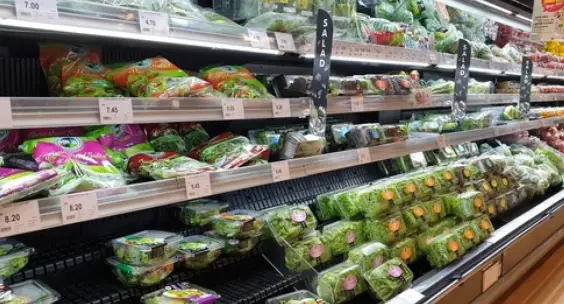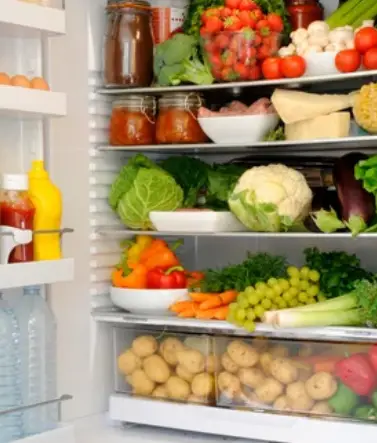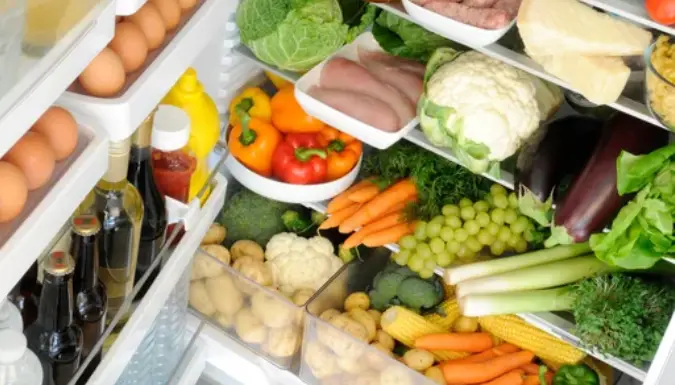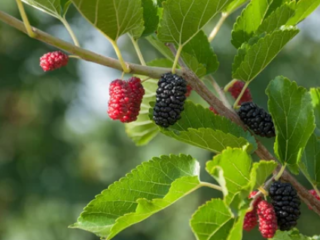Vegetables are a crucial component of a healthy diet, providing essential vitamins and minerals that our bodies need to function properly.
However, it can be difficult to know when they have gone bad, and how long they will last in the fridge.
In this blog post, we will explore the shelf life of different vegetables, how to store them properly, and what signs to look for to determine if they’ve gone bad.
How Long are Vegetables Good in the Fridge?

How Long are Vegetables Good in the Fridge
- Leafy greens (lettuce, spinach, kale): 5-7 days Leafy greens are delicate and can easily wilt or spoil if not stored correctly. To extend their shelf life, wrap them in paper towels and store them in an airtight container.
- Cruciferous vegetables (broccoli, cauliflower, cabbage): 1-2 weeks Cruciferous vegetables are hardier than leafy greens and can last longer in the fridge. Store them in an airtight container or wrap them in plastic wrap to prevent moisture loss.
- Root vegetables (carrots, potatoes, sweet potatoes): 2-3 months Root vegetables are known for their long shelf life, but it’s important to store them properly to prevent spoilage. Store them in a cool, dark place and avoid exposing them to moisture or light.
- Squash (summer and winter): 1-2 weeks Squash can be tricky to store, as they are sensitive to temperature and moisture. Store them in a cool, dry place, and avoid stacking them on top of each other to prevent crushing.
Proper Storage Techniques

- Use airtight containers: Store vegetables in airtight containers or plastic bags to prevent moisture loss and protect them from air exposure.
- Avoid stacking: When storing vegetables, try to avoid stacking them on top of each other, as this can cause crushing and spoilage.
- Store at the right temperature: Different vegetables have different temperature requirements, so be sure to store them in the right place. Leafy greens, for example, should be stored in the crisper, while root vegetables are best stored in a cool, dark place.
Signs that Your Vegetables Have Gone Bad
- Bad odor: If your vegetables have a strong, off odor, it’s a sign that they have gone bad and should be discarded.
- Sliminess: If your vegetables are slimy to the touch, they have likely gone bad and should not be consumed.
- Discoloration: If your vegetables have changed color or have become spotted or discolored, it’s a sign that they have gone bad and should be thrown away.
Factors that Affect Vegetable Shelf Life
There are several factors that can affect the shelf life of vegetables, including:
- Quality of the produce: The quality of the products you purchase will play a significant role in determining their shelf life. If you buy fresh, high-quality vegetables, they will last longer than those that are already starting to spoil.
- Exposure to air and light: Exposure to air and light can cause vegetables to spoil more quickly, so it’s important to store them in airtight containers or wrap them in plastic wrap to protect them.
- Ethylene gas: Some fruits, like bananas and apples, emit a gas called ethylene, which can cause vegetables to spoil more quickly. Store ethylene-emitting fruits separately from vegetables to extend their shelf life.
Tips for Maximizing Vegetable Shelf Life
- Don’t wash vegetables until you’re ready to use them: Washing vegetables before storing them can cause them to spoil more quickly, as the moisture from washing can encourage the growth of bacteria.
- Store vegetables separately: Different vegetables have different temperature and humidity requirements, so it’s best to store them separately to ensure that each type stays fresh for as long as possible.
- Use the first-in, first-out method: When storing vegetables, use the “first-in, first-out” method, which means using the oldest vegetables first and replacing them with the freshest ones. This will help you to avoid waste and ensure that you always have fresh produce on hand.
- Freeze or preserve: If you have an abundance of vegetables and don’t think you’ll be able to use them all before they go bad, consider freezing or preserving them. This is a great way to extend their shelf life and enjoy them later in the year.
Related post: vegetable bag for refrigerator
Conclusion
The shelf life of vegetables can vary greatly depending on the type and how they are stored. By using proper storage techniques and being aware of the signs of spoilage, you can ensure that your vegetables remain fresh and safe to eat. So, make the most of your products and enjoy the health benefits that come with eating a diet rich in fresh vegetables!




